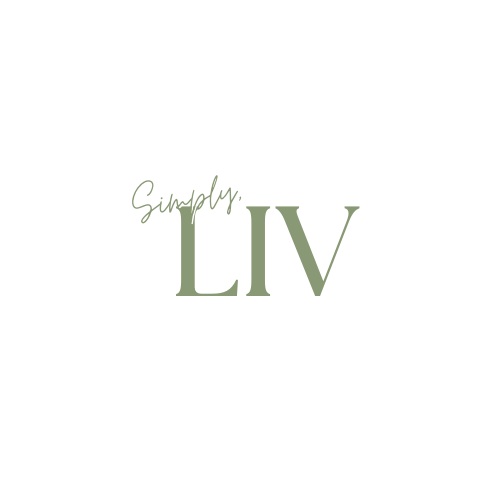The Spectrum of Clutter || Why Having Too Much "Stuff" isn't Always the Problem
A few weeks ago, I asked my Instagram followers which “type” of clutter most weighed them down. The answers were, as you’d expect, all over the board, with most saying that physical clutter distracted them the most. But regardless of which type bogged an individual down more, one thing stood out to me as I read the comments of the photo.
Not one person said they felt like clutter didn’t affect them.
No one said that they had all aspects of their lives squared away and didn’t struggle with at least one area.
This struck me because, despite our obsession with Kon Mari-ing everything, downsizing, and ensuring our wardrobes are neatly edited and capsuled, it’s still not enough. We still feel stressed. We still feel overwhelmed…sometimes (for me at least) it’s an overall feeling of overwhelm that I can’t peg on anything in particular.
These moments of “general overwhelm”, I’ve learned, usually boil down to an excess in one of the following areas that I haven’t recognized until it’s too late.
Sure, we can’t weed out every aspect of stress or “extra” from our lives, but we can do our best to recognize when we’re doing too much, owning too much, or taking on too much and learn when to cut back. It’s been one of the healthiest mental exercises I’ve started doing for myself, and I hope that once you’ve become more aware of which area of clutter stresses you the most, it will do the same for you too. Learning to think of clutter in a broader sense can be much more helpful than you’d realize.
I’d love to hear which clutter-style you most relate to in the comments below ;)
*Disclaimer, I don’t claim to be an expert in any of these areas, nor am I a psychologist. The following areas are simply describing things I’ve noticed both in my own life and in the lives of those I love.
Physical Clutter
The first “pillar of clutter” gets the worst rap of them all, likely because it’s the most visible and the most publicized. Physical clutter is out in the open, for you (and everyone who enters your home) to see. Our possessions are a reflection of what we value, so of course, they’re the first thing that gets attention when we get stressed or in need of a detox.
For some, myself included, untidiness is a major area of stress. I usually feel like I can’t sit down to write or be creative unless my space is at least a little bit cleaned up and I have a cup of coffee in hand. I’m drawn to aesthetics, so I like my space to reflect the kind of creativity I’m trying to conjure up. That’s likely why I was so drawn to minimalism after becoming a mom — it felt like the only way I could regain a sense of control and identity. Lots of you said the same thing on Instagram. You feel like you have too much stuff, too many clothes, too many unnecessary “junk drawers”.
Clearing out this clutter is a great and important step towards feeling more free, but it only scratches the surface.
2. Mental Clutter
It usually takes a bit of a “self-discovery” journey to figure out whether mental clutter weighs you down or if you’re able to stay more or less “on task” when it comes to your thoughts. Through learning more about myself via the Enneagram, I’ve learned that as a type 9, I have an exceptionally hard time learning which tasks to prioritize. This often leads to a brain fog where I’m aware of everything I need to do, but can’t quite nail down which item needs checked off first. Usually, I end up doing something less important (scrolling Instagram or picking up after the girls for the thousandth time) instead of doing the more intimidating but important things first.
Mental clutter can look different for everyone though. Some people are able to mentally keep track of everything (Type 1’s i’m looking at you), but for others, it’s really their mental clutter that weighs them down more than anything else.
3. Calendar Clutter
Oh, the glorification of staying busy. We get bored, so we schedule more. All too often, we subconsciously assign ourselves value through how many playdates, or meetings, or business calls we schedule for a particular week. How much we do, or achieve, instead of who we are. Having things to do somehow makes us feel more important/valuable/validated.
I wrote a few years ago about this “glorification”, making the case that being busy isn’t better. In this post, I break down a list of “why’s” for doing something — for example, I sometimes sign up for something because I think it will make someone else happy, instead of doing it because I want to do it.
I try to use the same “spark joy” mentality that I use for the belongings I keep when it comes to the way I schedule my time.
4. Emotional Clutter
For those who feel before analyzing (feelers vs. thinkers), emotional clutter can be debilitating. Oftentimes, this boils down to drama with family or friends or stressing over an important decision and being unable to prioritize anything else.
In cases like these, it’s so important to recognize which relationships are an added weight to your life without adding joy or edification. Of course, some relationships we can’t cut out fully, but there are most certainly times when saying goodbye to a toxic or unhealthy relationship is just the thing to help your mind heal and de-clutter.
Clutter, being the buzz word that it is, can be tricky to nail down. Clearing your life from clutter completely isn’t necessarily possible (or healthy), but being aware of your clutter stressors can help you live life more fully and simply.






